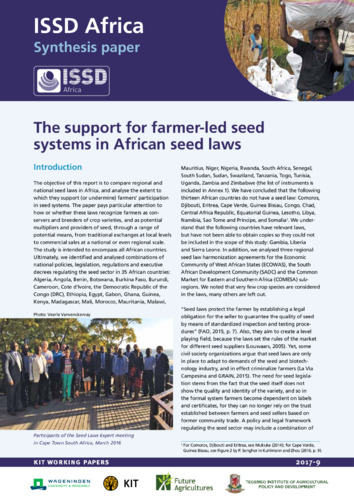The support for farmer-led seed systems in African seed laws.
The synthesis report is part of a series of papers on Integrated Seed Sector Development (ISSD) in Africa’s thematic working group on Matching national realities with global commitments. The thematic working group addressed the main question on how African governments implement their global commitments while fostering a viable pluralistic sector. The main hypothesis was that making these commitments more coherent with the practices and realities of farmers and creating an enabling environment for strengthening multiple seed systems will increase farmers’ access to quality seed. Three main topics were discussed under this theme: access and benefit sharing for climate resilient seed systems; national and regional seed laws that support the development of a robust, integrated seed sector that supports smallholder farmers' needs; and creating room for informal and intermediary seed systems in a UPOV '91 informed Plant Variety Protection system.
The study was conducted to answer a key question on how the various national and regional seed laws relate to the diversity of seed systems that exist in a given country. More specifically how current seed laws affect informal (farmer-based) seed systems and in what manner seed laws can be adapted to support these seed systems. Policies, laws and regulations of 32 African countries were carefully reviewed to identify some best practices and key issues and challenges in regulation. Findings from the study indicate that the main challenge for many African countries is that their seed regulations don’t include provisions that support farmer -led seed systems. As a way forward, there is need for revision of existing regulatory frameworks to takes into account the needs and characteristics of the various seed systems in order to increase the availability of quality seed of preferred varieties for all farmers.

